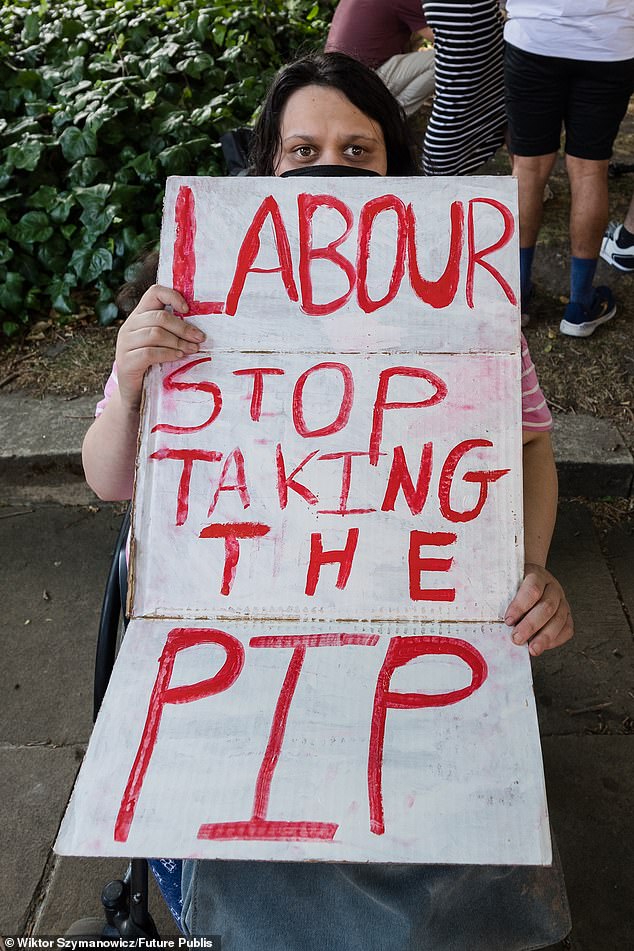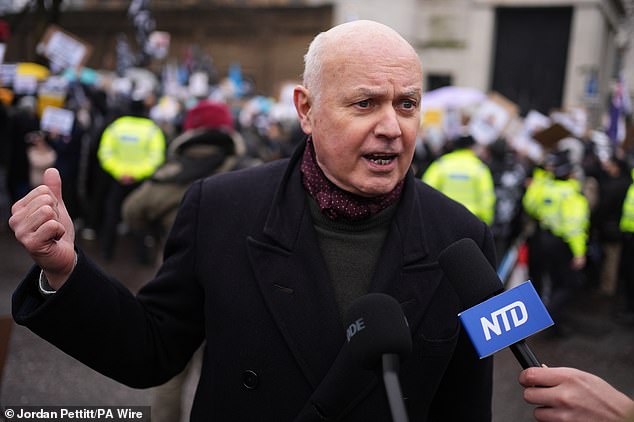A life on sickness benefits will soon pay £2,500 more a year than a minimum wage job, according to analysis.
Jobless people on sickness payments are due to overtake those on the national living wage who will earn less after tax, the Centre for Social Justice found.
It comes after Sir Keir Starmer failed to get through reforms to the benefits system that would have saved £5billion.
The report found that a Universal Credit claimant who isn’t working and claims the average housing benefit and Personal Independence Payment (PIP) for ill health will receive £25,000 next year.
However, a full-time worker on the national living wage will earn around £22,500 after paying income tax and National Insurance.
Former work and pensions secretary Sir Iain Duncan Smith said: ‘Before lockdown, we had the lowest numbers of workless households since records began.
‘However figures from the Centre for Social Justice show how damaging Covid was and that, since then, the scale of the disincentive to work has grown dramatically.
‘That’s why the Bill’s failure to look at real reform of the system is more costly than just the billions lost to the Chancellor, the real loss is that of the wasted lives trapped in a system of dependence rather than one of independence and achievement.’

Jobless people on sickness payments are due to overtake those on the national living wage who will earn less after tax, the Centre for Social Justice found.

It comes after Sir Keir Starmer failed to get through reforms to the benefits system that would have saved £5billion.
The CSJ also cited other examples of generous benefits payments which outstrip salaries for lower-paid jobs.
It found that a jobless single parent claiming for anxiety and for a child with ADHD (attention deficit hyperactivity disorder) will get nearly £37,000 a year.
This would be £14,000 more than a worker on the national minimum wage receives.
Last week the Office for Budget Responsibility said sickness was set to hit £100billion by 2030 and warned that UK finances are in a ‘vulnerable position’.
PIP payments to assist those with disabilities and health conditions have more than doubled each month since the pandemic, from 13,000 to 34,000 a month.
The increase has been driven by a rise in the number of people claiming for anxiety and depression as their main condition.
The CSJ said Britain would save up to £9billion a year targeting mental health benefits to fund NHS therapy and employment support.
It said PIP and the health element of UC should be withdrawn from those with milder anxiety, depression or ADHD – a change that could save £9billion.

Former work and pensions secretary Sir Iain Duncan Smith said: ‘The real loss is that of the wasted lives trapped in a system of dependence rather than one of independence and achievement.’
Joe Shalam, policy director at the CSJ, said: ‘Liz Kendall deserves credit for tackling the perverse incentives that have crept into the welfare system since Covid.
‘People who cannot work due to sickness or disability must always be protected, but as our research shows, too many people are trapped in a cycle of dependency and wasted potential.
‘By tightening eligibility for mental health benefits and investing in therapy and employment support, ministers can save public money and transform lives. The Timms Review must be brought forward to Autumn, there is no time to lose.’












